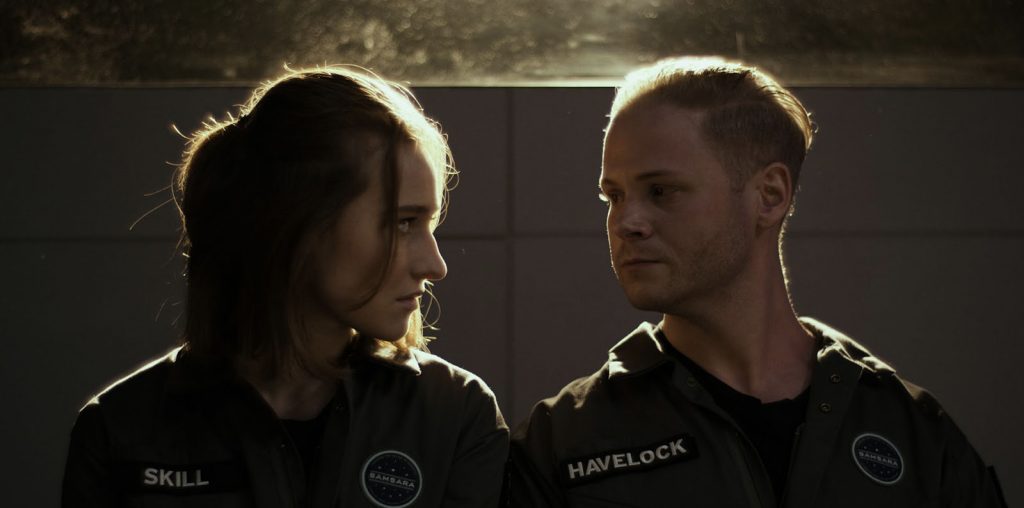
If you’ve never heard of ’50s auteur Douglas Sirk, much less seen one of his films, you may want to stay far away from “Far From Heaven.” The uninitiated would be in for a uniquely confusing and annoying moviegoing experience. So everyone is advised to prepare themselves by renting the DVDs (from the Criterion Collection, no less) of “Written on the Wind” and especially “All That Heaven Allows.” Seeing these classic domestic melodramas will enrich you in many ways, not least because you’ll get to see Jane Wyman lamenting to Rock Hudson, “Sometimes I think you wish I were a man.”
With “Far From Heaven,” indie upstart Todd Haynes aims to recreate Sirk’s odd, unique style down the most minute detail, and he succeeds to an often comical degree. But the fact that so much of his film plays as comedy serves to…undermine the drama a bit. Whatever one’s degree of admiration for the film may be, one question nags throughout the “Far From Heaven” experience: Is this, uh, supposed to be funny?
The same question applied, in a weird way, to the last act of Haynes’ 1995 germophobia freakout “Safe.” In that film, Julianne Moore’s vacuous, tremulous Valley housewife, Carol White, is a black-couch-fearing “milkaholic,” who grows so allergic to the modern world that she winds up being sent to a germ-free New Age ranch, a “safe” environment at once controlled and alarmingly touchy-feely. We were never sure how Haynes felt about this place, and he probably wasn’t either. “Safe” is a deeply strange film – like Kubrick splicing together “The Stepford Wives” and “The Boy in the Plastic Bubble” – but it’s always anchored by Moore’s moving, absolutely fearless performance. However you felt about the film, you really felt for her poor, pathetic character.
In “Far From Heaven,” the magnificent Moore plays a not-dissimilar character to Carol White (down to her very initials): Cathy Whitaker is a poised, cheery suburban housewife whose world of picture-perfect domesticity is just begging for a jolt of some kind.
There are actually two jolts, delivered one after the other: first, Cathy learns that her businessman husband Frank (Dennis Quaid, once again in the Oscar ballpark after his home-run performance in The Rookie) is, quite against his will, hearing the call of…the love that dare not speak its name, lurking around gay bars and making out with a young man in his office. Heavens to Betsy! Then, to thicken the plot even more, Cathy finds herself seeking refuge in the company of her courtly black gardener, Raymond (Dennis Haysbert). So many Dennises, so little time…
Haynes has guided his cast into pitching their “pre-Method” performances just this side of camp, just short of diving headlong into a churning vat of pure soap. This formidable trio of actors ground their emotions in intense reality, though they must often contend with the meticulous production design, the lavish color-coded costumes, the psychedelically lush photography (by Edward Lachman, a long way from the putrid “Kids”) and the ’50s corn of Elmer Bernstein’s score (dear old Elmer actually has been scoring movies since the ’50s, after all).
Once again, though – almost in spite of Haynes’ rigorous post-ironic efforts to bring Sirk back from the dead in any and every way he can – it ultimately comes down to Moore. She imbues Cathy with endless reservoirs of optimism against the most absurd odds: the more her world falls apart, the harder she smiles. Watching that gorgeous smile collapse repeatedly in the face of one sticky situation after another, and then magically reappear as Cathy finds her bearings again, is indescribably touching. Through it all, Cathy is endlessly hopeful, and Moore manages to turn this stylish but utterly ordinary ’50s woman into a heroine for the millennium. She’s a domestic Wonder Woman, and Moore is simply…wonderful.
